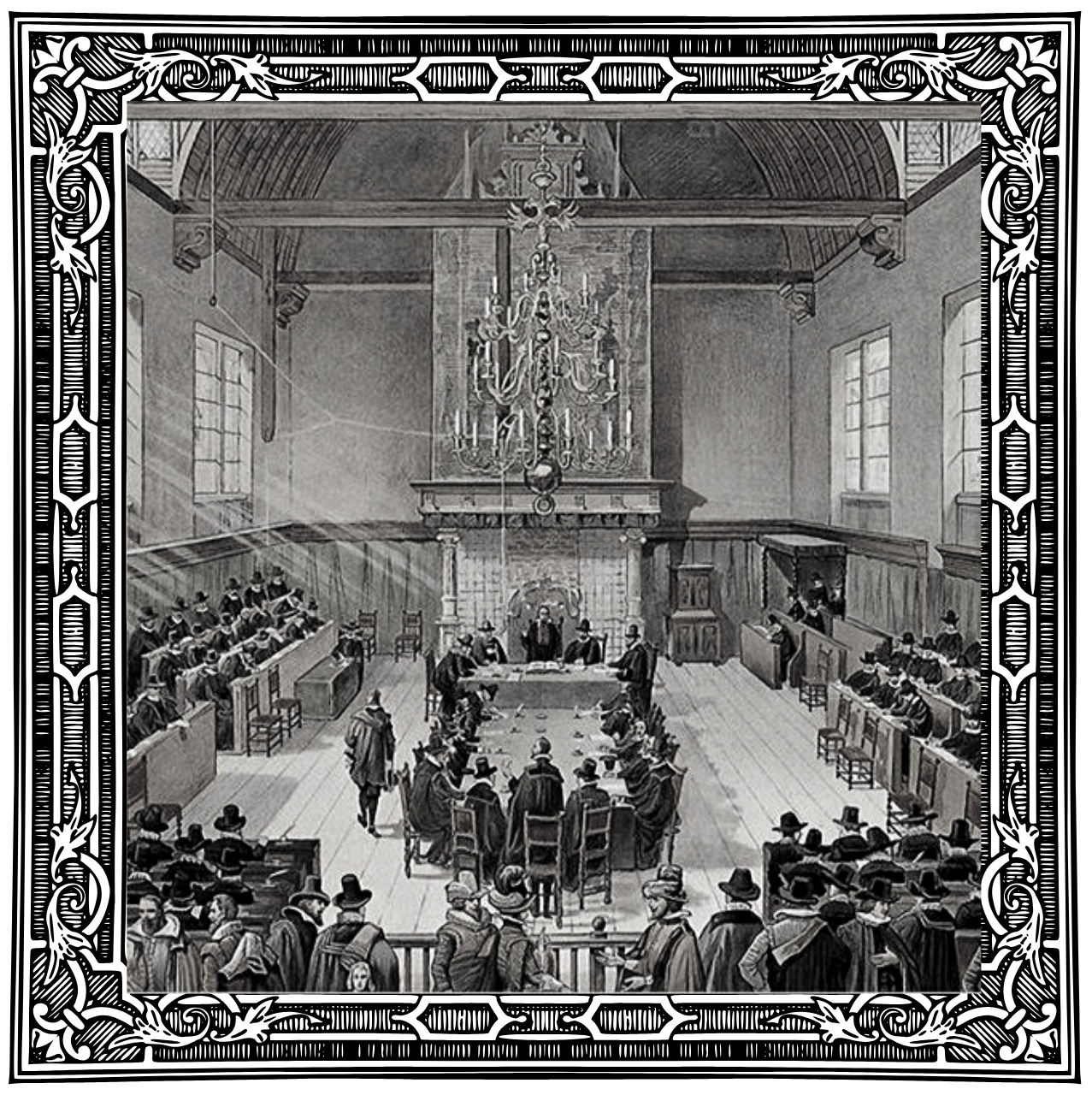 The glory of God is “one of the master images that helps to tell the story of the Bible.”[1] It’s also a key theological concept to know the God of the Bible: “All the attributes of God are summarized in Scripture’s references to the glory of God. The majesty, splendor, beauty, and brilliance of God who dwells in unapproachable light are expressed by this indefinable term.”[2] Elsewhere I’ve written on the tabernacle in Exodus. Here I’d like to focus on the glory of God in Exodus.[3]
The glory of God is “one of the master images that helps to tell the story of the Bible.”[1] It’s also a key theological concept to know the God of the Bible: “All the attributes of God are summarized in Scripture’s references to the glory of God. The majesty, splendor, beauty, and brilliance of God who dwells in unapproachable light are expressed by this indefinable term.”[2] Elsewhere I’ve written on the tabernacle in Exodus. Here I’d like to focus on the glory of God in Exodus.[3]
However, the glory of God is also difficult. On the one hand, God is glory. He alone is “the God of glory (Acts 7:2). This is why he says, “my glory I give to no other” (Isa. 42:8). On the other, we give glory to God: “Ascribe to the Lord the glory due his name” (Ps. 29:2a). Historic Christian worship expresses this in the doxology appended to the end of the reading or singing of the Psalms:
Gloria Patri, et Filio, et Spiritui Sancto.
Glory be to the Father, and to the Son, and to the Holy Spirit.[4]
Dealing with such a grand theme is beyond the bounds of this series. Instead, I ask you to focus your attention just on the glory of God in Exodus.
A Survey of God’s Glory
To do this, it’s important to give a brief account of the meaning of “glory” throughout Scripture. The Hebrew root word for glory is כָבֹ֑וד, kavod.
As a Verb
In Exodus it’s used as a verb to speak of the Lord’s making heavy. he made Pharaoh’s heart heavy (Ex. 7:14, 9:7, 34, 10:1). Children are to “honor” (make heavy) their fathers and mothers (Ex. 20:12). Furthermore, God “glorifies” or makes himself heavy (Ex. 14:4, 17, 18).
As an Adjective
It’s also used as an adjective. Moses spoke of the “heaviness” of his tongue (Ex. 4:10). We read about the “weariness” of his hands in the battle versus Amalek (Ex. 17:12). Why? They were “heavy.” Moses speaks of the “severity” of the plagues (Ex. 9:3). For example, the “heaviness” of the hail (Ex. 9:18, 24) or the “density” of the swarm of locusts (Ex. 10:14).[5]
As a Noun
Even more so, throughout Exodus and the Old Testament the glory of God is a noun: glory or honor. For example, Laban’s sons said “Jacob has taken all that was our father’s, and from what was our father’s he has gained all this wealth” (Gen. 31:1). “Wealth” is the sense of “glory.” Joseph said his status as second-in-command in Egypt was “all my honor” (Gen. 45:13). Later, David died “full of days, riches, and kavod” (1 Chron. 29:28). King Ahasuerus “showed the riches of his royal glory” (Esther 1:4). Why? His gold, land, and army were literally weighty, heavy, and vast.
Especially of note is that in reference to God, kavod means he’s inherently weighty or “worthy” in all he is and does. Therefore, he is glorious. He was the glory of Israel; not their armies (Jer. 2:11).
In Creation & Providence
The glory of God in Exodus is also the glory revealed in creation (Ps. 19:1). In particular, God made man in his own image and glory (Gen. 1:26–27; 1 Cor. 11:7). God’s glory is also revealed in his providence over storms (Ps. 29:3, 9).
In the Fall
In humanity’s sin, we have fallen short of this glory of God (Rom. 3:23).
In the Wilderness
God reveals his glory in Exodus when he gave the Law to Israel (Ex. 24). Over and over his glory shone in the wilderness wandering (Num. 14:10, 21, 22; 16:19, 42; 20:6). Finally, the Lord’s encounter with Moses’ reveals his glory (Ex. 33:18–23).
In Worship
The glory of God in Exodus is localized in the tabernacle’s worship (Ex. 40:34–38; Lev. 9:6, 23). So important was the cloud, in fact, that the high priest was warned not to enter the Holy of Holies except when God appointed. The reason was that the God in the cloud of glory would put him to death (Lev. 16:2).[6] This was later manifested in the temple’s worship (1 Kgs. 8:11; 2 Chron. 5:14; 7:1–3; Ps. 24:7–10; 26:8; 63:2). When Solomon consecrated the priests, they were initially unable to minister in it “because of the cloud, for the glory of the Lord filled the house of the Lord” (1 Kgs. 8:11).
In the Prophets
Bringing our survey to an end, God’s glory in the Exodus later called prophets (Isa. 6; Ezek. 1). A part of their ministry was proclaiming the eschatological element of glory. They pointed forward to a great manifestation of God’s glory (Isa. 40:5). His glory would lead the nations to come to him at Jerusalem (Isa. 60:2; 66:1). Ultimately, the entire world would be filled with his glory (Num. 14:21). With all this in mind, Paul said Israel was blessed because it had “the glory” (Rom. 9:4). At that prophetic horizon was the rising of the Son, Jesus Messiah. His revelation caused the spread of the Gospel of God’s glory to the ends of the earth. One day, the final fulfillment will be in the new heavens and new earth.
The Benefits
With this in mind, why should we spend time meditating on the glory of God in Exodus and beyond? The reason is this: the God who is, is a God of glory. He’s our God. As God, he calls us to know, to love, and trust him. He knows us; but we need to spend time getting to know him! For example, because of who he is, Stephen Charnock (1628–80) wrote, “The glory of God must be principally in our minds, and nearest our hearts in all our supplications.”[7]
There’s another reason we must meditate on the glory of God: the eternal benefits this brings to us as sinners. Again, Charnock: “Without a due and frequent reflection upon [the glory of God], we can never have a spirit of thankfulness for our great redemption, because we cannot else have sound impressions of the magnificent grace of God in Christ.”[8] When we meditate on the glory of God we’re brought face-to-face with Jesus for salvation. This glory of God in the face of Jesus Christ becomes our overwhelming passion. In the words of John Owen (1616–83):
They know nothing of the life and power of the gospel, nothing of the reality of the grace of God, nor do they believe aright one article of the Christian faith, whose hearts are not sensible of the love of Christ herein; nor is he sensible of the love of Christ, whose affections are not thereon drawn out unto him.[9]
The question is how we, mere sinful creatures, can meditate on the glory of God? The answer is that the ultimate object and point of reference of the glory of God is Jesus Christ. To quote Owen again: “All divine truths do centre in the person of Christ.”[10] This is what Jesus said. The Law, Psalms, and Prophets point to him (Luke 24).
Jesus: The Glory Incarnate
With God’s revelation in the New Covenant, the glory of God in Exodus and elsewhere becomes focused upon our Lord. Owen described this as “the meanest [simplest] believer may now find out more of the work of Christ in the types of the Old Testament, than all the prophets or wise men could have done of old.”[11] Let’s briefly outline how God’s glory in the Exodus finds its fulfillment in Jesus.
Glory in his Work
Of his incarnation the New Testament says, “we have seen his glory, glory as of the only Son from the Father” (John 1:14). Whose glory? The one whom Hebrews says “is the exact imprint of the glory of God” (Heb. 1:3).
Angels heralded his birth as the glory of God surrounding them (Luke 2:9, 14). Therefore, he’d be called the light of the Gentiles and glory of God (Luke 2:30–32).
Through his signs (σημείων) his glory was revealed (e.g., John 2:11).
At his transfiguration his disciples saw a glimpse of his pre-incarnate glory (Matt. 17; 2 Peter 1:16–17).
In raising his friend Lazarus he demonstrated his glory (John 11:40).
When he prayed, we hear of the glory he had before the world began and desired to have again (John 17).
His death revealed his glory (John 7:39; 12:23–28; 13:31; 17:5; Heb. 2:9).
By his resurrection he entered into a status of glory (Luke 24:26; Acts 3:13; Rom. 6:4; 1 Peter 1:21). By the resurrection he received a glorious body (1 Cor. 15:39–43; Phil. 3:21).
At the ascension, he was glorified (1 Tim. 3:16). After, Stephen saw him in glory (Acts 7:55).
Finally, at his Second Coming he’ll reveal his glory once again (Matt. 16:27; 24:30; 25:31; Mark 8:38; 13:26; Luke 21:27; 2 Thes. 2:9–10).
Summary
In sum, Paul called Jesus the “Lord of glory” (1 Cor. 2:8). Even more than with Moses, the glory of God shines in his face (2 Cor. 3:18). What does this mean? To see his face is to see the glory of God (2 Cor. 4:4–6).
The Believers’ Participation in Glory
In conclusion, we’ll participate in the glory of God in Exodus in the future (1 Peter 5:1). Our God calls us to his eternal glory (1 Peter 5:10). Giving us Christ is the downpayment: “the hope of glory” (Col. 1:27). When we suffer in this life, God’s prepares us for glory (2 Cor. 4:17–18). Amazingly, when Jesus appears again, we’ll be with him in the glory of God (Col. 3:4).
[1] “Glory,” in Dictionary of Biblical Imagery, ed. Leland Ryken, James C. Wilhoit, Tremper Longman III (Downers Grove: InterVarsity Press, 1998), 330 (emphasis in original). See also New Bible Dictionary, ed. J. D. Douglas, F. F. Bruce, J. I. Packer, N. Hillyer, D. Guthrie, A. R. Millard, and D. J. Wiseman (Second edition, 1982; Leicester and Downers Grove: InterVarsity Press, reprinted 1996), 423–424; William Dyrness, Themes in Old Testament Theology (Downers Grove: InterVarsity Press, 1977), 42–43; Tyndale Bible Dictionary, ed. Philip W. Comfort and Walter A. Elwell (Carol Stream: Tyndale House Publishers, 2001), 533–35, 539.
[2] Tyndale Bible Dictionary, 539.
[3] Like God in Our Midst, this series comes from my sermons through the book of Exodus. Subsequently, I presented a first a series of conference messages in July 2011 in Belem & Recife, Brazil.
[4] On this twofold distinction of God’s glory, see Thomas Watson, A Body of Divinity (1692; 1958; Edinburgh: The Banner of Truth Trust, reprinted 2000), 6–7.
[5] BDB, 457–59.
[6] On this see Geerhardus Vos, Biblical Theology: Old and New Testaments (1948; Edinburgh: The Banner of Truth Trust, reprinted 1996), 152–53.
[7] Owen, Works, 4:7.
[8] Owen, Works, 4:7.
[9] Owen, Works, 1:166–67.
[10] Owen, Works, 1:65 cf. 4:104.
[11] Owen, Works, 1:101.







